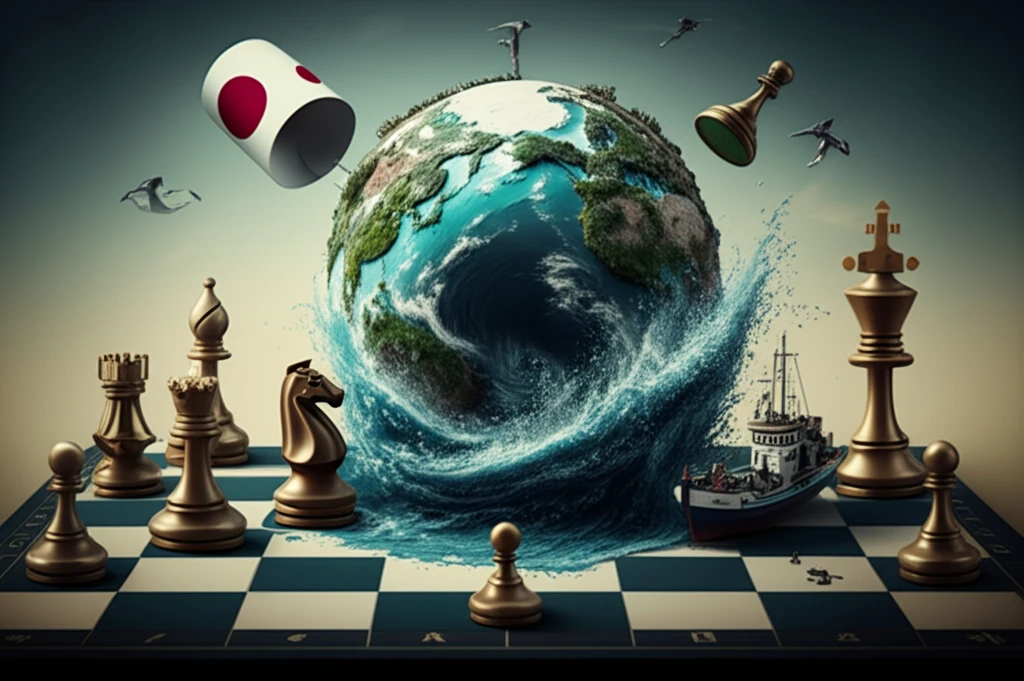
Fukushima's Fallout: Can Game Theory Help Solve Nuclear Wastewater Disputes?
"A new study uses evolutionary game theory to explore international cooperation and strategic decision-making surrounding the Fukushima nuclear wastewater discharge, offering fresh insights and practical guidance for marine conservation and sustainable development."
The decision by Japan to discharge nuclear wastewater from the Fukushima Daiichi Nuclear Power Plant into the ocean has ignited a firestorm of controversy, sparking intense debates both domestically and on the international stage. The Fukushima disaster of 2011, a catastrophe of immense proportions, left a legacy of radioactive contamination that continues to pose challenges. As the world grapples with the potential impacts of this decision, a new study offers a unique lens through which to examine the intricate dynamics at play.
Enter evolutionary game theory, a powerful analytical tool that helps decipher the strategic interactions between different players in a given scenario. In this case, the players are Japan, other countries concerned about the discharge, and the Japan Fisheries Association, each with their own interests and priorities. By incorporating a range of factors – economic considerations, legal frameworks, international aid, and environmental concerns – the study aims to map out the possible strategies and predict the likely outcomes of this high-stakes game.
This research focuses on Japan's possible shift away from discharging wastewater, exploring the different factors influencing this change and the effects on stakeholder decisions. The study provides a fresh perspective and useful guidance, intending to promote global agreement on how to handle nuclear wastewater, which is important for protecting our oceans and supporting long-term sustainability.
Decoding the Fukushima Dilemma: How Does Game Theory Work?

Evolutionary game theory moves beyond traditional economics to analyze how strategies evolve over time within a population. Unlike classical game theory, which assumes perfect rationality and complete information, evolutionary game theory acknowledges that decisions are often made with limited knowledge and that strategies can change as players learn from experience. This is particularly relevant to the Fukushima situation, where uncertainties abound and the long-term consequences remain unclear.
- Japan chooses to discharge wastewater.
- Other countries sanction Japan.
- The Japanese Fisheries Association opposes the discharge.
Charting a Course Toward Consensus: Key Takeaways and Policy Implications
This study highlights the critical need for international cooperation, rigorous scientific research, public education, and effective wastewater treatment methods. By understanding the strategic dynamics at play, policymakers and stakeholders can work together to forge a global consensus on nuclear wastewater management, ensuring the health of our oceans and the well-being of future generations. The path forward requires a commitment to transparency, open dialogue, and a willingness to prioritize the common good over narrow self-interests.
